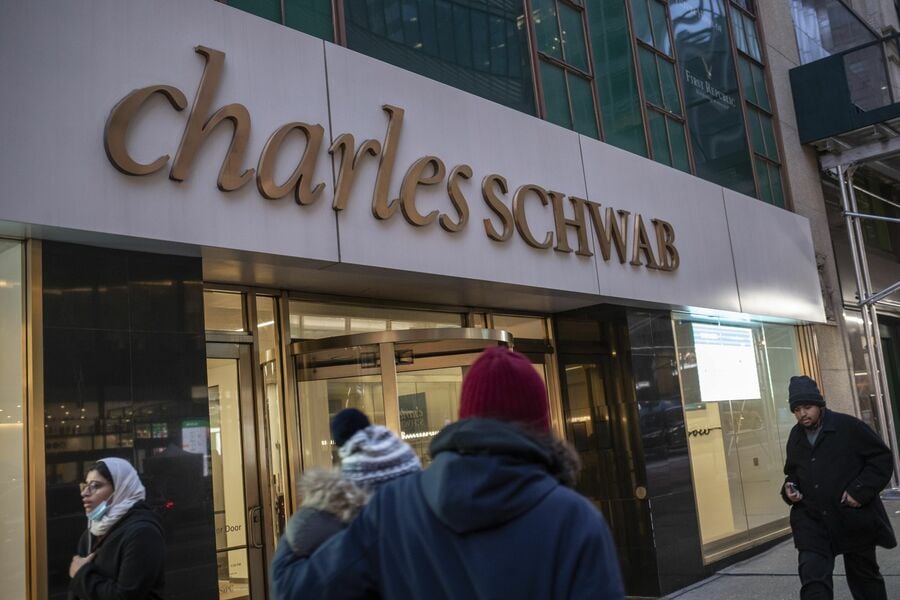

Charles Schwab Corp. started using derivatives to hedge interest rate-related risk during the first quarter.
The derivatives were valued at $3.9 billion as of March 31, Schwab said in a regulatory filing Monday.
Schwab, which runs both brokerage and bank businesses, has been ensnared in the tumult ravaging U.S. regional banks after the Federal Reserve embarked on its most aggressive interest rate tightening cycle in decades last year.
The Westlake, Texas-based company confronted swelling paper losses on securities it owns and grappled with dwindling deposits as customers moved cash into accounts that earn more interest. Schwab’s executives have said those withdrawals will abate. The pace of cash withdrawals is already starting to slow, Chief Financial Officer Peter Crawford said in a recent statement.
Shares of Schwab slid 0.2% to $47.55 in early trading at 8:35 a.m. in New York. The stock had plunged 43% this year through Monday.
To keep up with withdrawals, Schwab has been relying on higher-cost funding sources, including loans from the Federal Home Loan Bank system. Schwab had about $45.6 billion in outstanding FHLB loans and $6.8 billion in repurchase agreements at the end of March.
Last year, the company began issuing certificates of deposit — longer-term savings vehicles that lock up customer money for a fixed period. Schwab clients held $31 billion of CDs at the end of March, accounting for roughly 9% of Schwab’s total bank deposits. Since then, the firm issued an additional $6.8 billion of CDs through other brokers.
Schwab expects emergency funding measures to taper off, forecasting that its use of more expensive funding will peak this year and decrease in 2024, with only limited amounts remaining in 2025.

The wealth tech platform says its newly secured patent represents crucial advances in digitizing outdated manual processes.

Financial advisors offer their thoughts on the President's widely anticipated executive order to open retirement accounts to private market assets.

The SEC says First Liberty lured investors with high-yield promissory notes, then used fresh cash to cover defaults and interest owed to earlier investors.

The agency's decision to stay the approval process just hours after signing off highlights ongoing ambiguity for new crypto-focused ETF offerings.

Meanwhile, Cetera has boosted its own recruitment numbers with new additions from LPL and Osaic.
Orion's Tom Wilson on delivering coordinated, high-touch service in a world where returns alone no longer set you apart.
Barely a decade old, registered index-linked annuities have quickly surged in popularity, thanks to their unique blend of protection and growth potential—an appealing option for investors looking to chart a steadier course through today's choppy market waters, says Myles Lambert, Brighthouse Financial.
